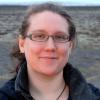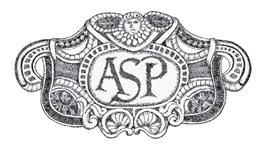People
|
|
|
|
|
|
|
|
|
|
|
|
|
|
|
|
|
|
|
|
|
|
 Kimberlee Moran Associate Teaching Professor & Director of Forensics Rutgers University - Camden Campus k.moran@camden.rutgers.edu Kimberlee Sue Moran has been a practicing forensic archaeologist since 2002. She holds an undergraduate degree in Classical and Near Eastern archaeology from Bryn Mawr College and a Master’s of Science in forensic archaeological science from the Institute of Archaeology at University College London. Her doctoral research is in the field of ancient fingerprints. Kimberlee worked as a contract archaeologist for a CRM firm based in Trenton, NJ, prior to moving to the UK. She moved back to New Jersey in 2010 and now works at Rutgers-Camden. She is an active member of the Society for American Archaeology and is a member of the Register of Professional Archaeologists (RPA). |
|
|
 Sara A. McGuire Bioarchaeologist & Post-Doctoral Fellow Smithsonian Institution smcguire9@gmail.com Sara A. McGuire completed her doctorate in biological anthropology at the Ohio State University in 2020. Her dissertation examined the effects of Industrialization on individuals from England by analyzing the trace element pollutant composition of their skeletal remains in conjunction with aspects of their biosocial identities, such as age, sex, and socioeconomic status. Sara began a post-doctoral fellowship at the Smithsonian Institution in May 2022 that will examine the human skeletal remains from Arch Street. Her project seeks to increase our understanding of the effects of the American Revolution. Specifically, she will study whether the shift from British Colonial Rule to Self-Governance affected individuals' access to resources - particularly their access to food. She will be collecting and analyzing bone samples from 100 individuals in the Arch Street Collection for carbon, nitrogen, and oxygen isotopes. She will use these data to reconstruct individuals' diets at different periods of their lives to determine if there are indicators of dietary changes. She will also assess individuals' remains for skeletal manifestations of poor nutrition, such as porotic hyperostosis, cribra orbitalia, scurvy, and rickets, which reveal insight into the "quality" of individuals' diets. Sara's interests and research specializations include human-environment interactions, political ecology and structural violence, biogeochemistry, and the use of interdisciplinary methods to examine the physiological manifestations of historic processes. |
|
|
 George Leader Adjunct Professor and Post-Doctoral Researcher The College of New Jersey and University of Pennsylvania georgemleader@gmail.com George M Leader is an archaeologist focused on the analysis of the material culture made and used by peoples of the past. With over a decade of experience he has worked on a range of projects spanning material culture from the Earlier Stone Age of Africa to colonial America and on four continents. Currently he heads research projects in South Africa and New Jersey and experimental research at University of Pennsylvania. George joined the Arch St. team during the excavations of the remains and has been working closely as the remains found lab space. George, Jared and Kimberlee co-taught the 2017 fieldschool for students to work with the remains as they are studied. He holds a Ph.D. in archaeology from University of the Witwatersrand in Johannesburg, South Africa from where he also earned his M.Sc. His B.A. in Anthropology is from Gettysburg College, Gettysburg, Pennsylvania. |
|
|
|
|
|
|
|
|
|
|
 Allison Grunwald Osteoarchaeologist allison.grunwald@gmail.com Allison Grunwald has worked with bones, both human and animal, since 2002. She received a BA from the University of Delaware (2005) as a dual major in Anthropology and Foreign Languages and Literature: Greco-Roman Studies (Latin Language), a MA from the University of Southampton, UK (2006) in Osteoarchaeology, and a PhD in Anthropology from the University of Wyoming (2016). Her MA research dealt with the analysis of commingled human and animal remains from the Iron Age in southern England, and her doctoral research comprised experimental zooarchaeology and bone fragmentation analysis, and the analysis of a 10,000 year old Bison antiquus archaeological bone bed resulting from a mass kill by Paleoindians. She brings to the Arch Street Project her experience and interest in working with commingled osteological remains, bone modification, and paleopathology. |
 Claire L. Gold Assistant Project Anthropologist Dept. of Anthropology, University of Massachusetts, Amherst cgold@umass.edu Claire L. Gold received a Master's degree in Biological Anthropology from the State University of New York, Binghamton, in 1998. She studied Anthropology with a specialization in human skeletal biology as an undergraduate at the University of Massachusetts, Amherst, and received a B.A. in 1995. Claire has taught as a lecturer in Forensic Anthropology and Paleoanthropology since 2005 at The University of Massachusetts, Clark University and Bay Path University. She founded a K-12 traveling fossil workshop in 2010, The Human Origins Workshop, in an effort to make Anthropology accessible to younger students. Currently, she serves as Director of The Human Origins Workshop and Northeast Director of Forensic Archaeology Recovery. She is a member of the Society for American Archeology and the American Investigative Society of Cold Cases. Claire joined the Arch Street Project in March 2017 and has assisted with excavation and photography of the skeletal remains. |
 Emily Foreman Student Rutgers-Camden emilyforemane@gmail.com Emily Foreman is a biology student at Rutgers-Camden, finishing her junior year. She has done work for the Arch Street Project since 2018 and is completing an independent study for the spring of 2019. |
|
|
|
|
|
|
|
|
 Gabby DiEmma Arcadia University gdiemma@arcadia.edu Gabrielle DiEmma received a Bachelor of Science in Chemistry from Arcadia University in May 2019. She is currently a second year graduate student completing her Master of Science in Forensic Science at Arcadia University as part of the graduating class of 2021. She is involved with the Arch Street Project as an intern taking inventory, organizing, documenting, and analyzing the Arch Street samples at Rutgers University Camden campus supervised by Kimberlee Moran.
|
 Anna Dhody Curator, Mütter Museum & Director, Mütter Research Institute Mütter Museum & Mütter Research Institute adhody@collegeofphysicians.org Anna Dhody is the curator of the Mütter Museum and Director of the Mütter Research Institute of The College of the Physicians of Philadelphia. As curator, she oversees the Mütter Museum's "disturbingly informative" collection, and works to provide a unique, informative experience for its 150,000-plus annual visitors. Before joining the Mütter, she served as an osteologist at Harvard University's Peabody Museum of Archaeology and Ethnology. In 2003, Ms. Dhody traveled to Peru to work with the United Nations Development Programme and the Public Ministry of Peru, identifying some of the estimated 69,000 Desaparecidos, "the disappeared," victims of state terrorism. While in Peru, Ms. Dhody taught Human Osteology and Forensic Anthropology to employees of the Public Ministry and performed analysis on many of the found remains. In 2014 Ms. Dhody formed the Mütter Research Institute to promote the research and use of historic specimens in modern scientific and medical research. |
|
|
|
|
|
|
|
|
|
|
 Nicholas Bonneau Principal Historian University of Maryland, Baltimore County nicholas.bonneau@gmail.com Nicholas E. Bonneau is a historian of science, religion, and the environment, with a particular interest in the demographic and cultural legacies of epidemics. He earned his Ph.D. in History at the University of Notre Dame and is a lecturer in the history of science, medicine, and disease at the University of Maryland, Baltimore County. Dr. Bonneau is also the creator of the Death Records of the Early America Database (the DREAD), linking hundreds of thousands of vital records from across Europe, Africa, and the Americas. He has received fellowships from a wide range of institutions, including the National Science Foundation, the University of Pennsylvania, the American Antiquarian Society, the College of Physicians of Philadelphia, and the Congregational Library and Archives. He was the 2016-17 Carpenter Fellow in Early American Religious Studies at the McNeil Center for Early American Studies and remains a Research Associate at the University of Pennsylvania and consulting scholar at the Mutter Research Institute of the College of Physicians of Philadelphia. |
 Jared Beatrice Assistant Professor of Anthropology The College of New Jersey beatricj@tcnj.edu Jared S. Beatrice is a biological anthropologist specializing in human osteology, bioarchaeology, and forensic anthropology. His research uses skeletal evidence of physiological stress and disease to investigate health status and living conditions in populations ranging from the late antique Mediterranean to modern communities in Mexico and Central America. Since 2005, Jared has conducted bioarchaeological fieldwork in Albania, Greece, and Italy. In addition to the Arch Street Project, he maintains a collaborative field research project focusing on the osteological analysis of medieval human remains from Roselle, Tuscany. Jared holds Ph.D. and M.A. degrees in anthropology from Michigan State University and a B.A. in anthropology from Ohio University. |
|
|
|
|
